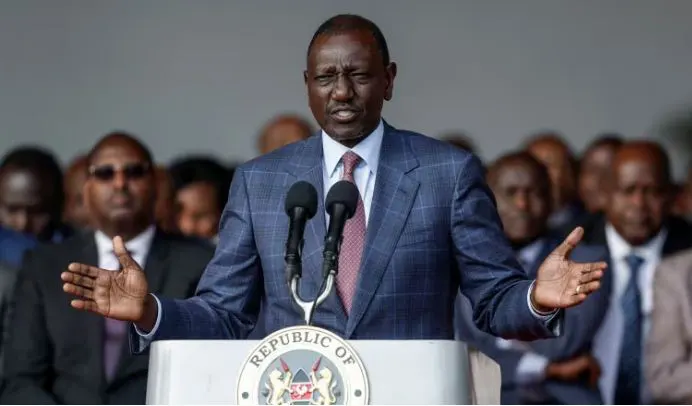Kenya’s president on Wednesday withdrew planned tax rises, bowing to pressure from protesters who had stormed parliament, launched demonstrations across the country and threatened more action this week.
William Ruto said he would not sign a finance bill including the hikes a day after violent clashes between police and protesters at the assembly and nationwide left at least 23 people dead and scores wounded, according to medics.
“Listening keenly to the people of Kenya who have said loudly that they want nothing to do with this finance bill 2024, I concede. And therefore, I will not sign the 2024 finance bill, and it shall subsequently be withdrawn,” he said in a televised address.
Ruto said he would now start a dialogue with Kenyan youth, without going into details, and work on austerity measures – starting with cuts to the budget of the presidency – to make up the difference in the country’s finances.
The move will be seen as a major victory for a week-old protest movement that grew from online condemnations of tax increases into mass rallies demanding a political overhaul, in the most serious crisis of Ruto’s two-year-old presidency.
It may see off the immediate threat of more unrest, but leaves Ruto still caught between the competing demands of his hard-pressed citizens and of lenders such as the IMF – which is urging the government to cut deficits to obtain more financing.
On Tuesday, police opened fire on crowds who massed around parliament and later broke into the assembly’s compound, minutes after lawmakers had voted through the tax measures and sent them on to the president.
The Nation newspaper documented protests in at least 35 of Kenya’s 47 counties, from big cities to rural areas – even in Ruto’s hometown of Eldoret in his ethnic Kalenjin heartland.
At least 23 people were killed across the East African country and another 30 were being treated for bullet wounds, the Kenya Medical Association said on Wednesday. Medical officials in Nairobi said scores had been injured.—AFP










